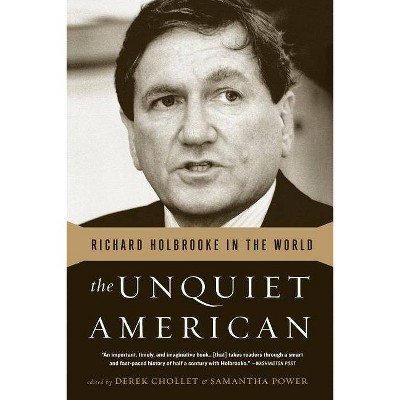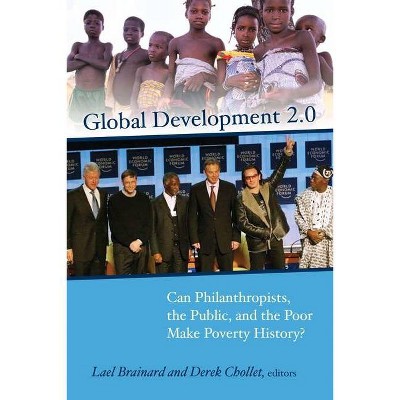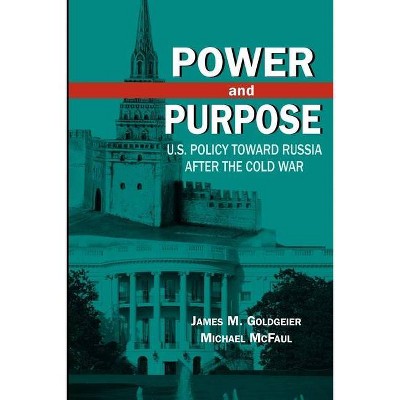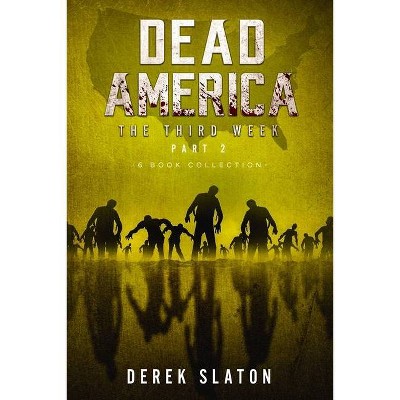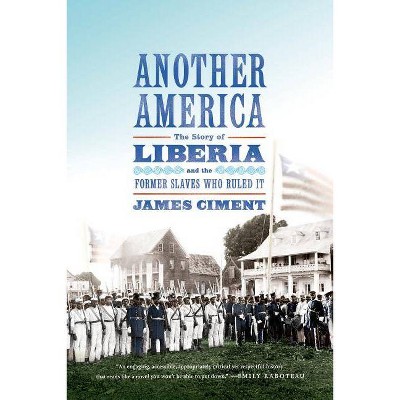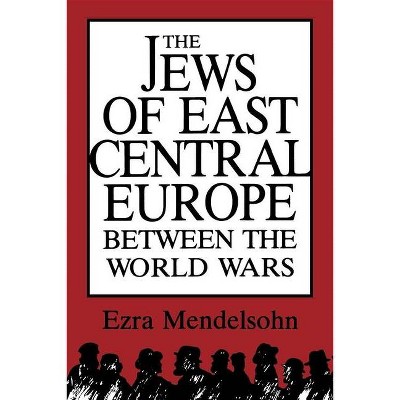America Between the Wars - by Derek Chollet & James Goldgeier (Paperback)
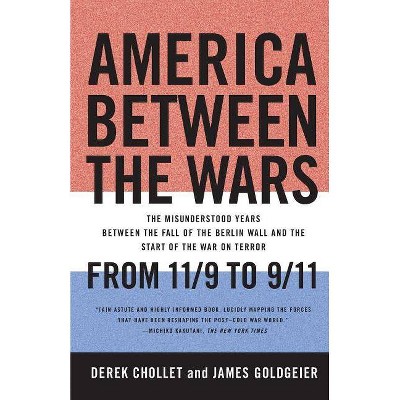
Similar Products
Products of same category from the store
AllProduct info
<p/><br></br><p><b> About the Book </b></p></br></br>Chollet and Goldgeier examine how the decisions and debates of the years between the fall of the Berlin Wall on November 9, 1989, and the collapse of the Twin Towers on September 11, 2001, shaped the events, arguments, and politics of the modern world.<p/><br></br><p><b> Book Synopsis </b></p></br></br>On November 9, 1989, the Berlin Wall collapsed, taking the Cold War down with it. The next twelve years passed in a haze of self-congratulation, Republican confusion, and angst, and economic prosperity -- until they ended abruptly with a stunning catastrophe on September 11, 2001. <p/><i>In America Between The Wars</i>, Derek Chollet and James Goldgeier blend deep expertise with broad access to both parties' political and policy establishments to find out how -- and why -- America failed to recognize that when we became the sole superpower with responsibility for the world's oversight, we overlooked how the new world actually worked.<p/><br></br><p><b> Review Quotes </b></p></br></br><br><p>Lee H. Hamilton, President and Director of the Woodrow Wilson International Center for Scholars<br>"Chollet and Goldgeier have written a highly informative, engaging, and accessible account of the period between America's most recent major wars--the cold war and the war on terror. In this balanced and well-written story they argue that 9/11 did not change everything and that in order to analyze America's challenges today, one must understand the foreign policy debates and clashes of the 1990s."<br><p>Richard Holbrooke<br>"An indispensable history of the decade preceding 9/11."<br><p>Philip Stephens, Financial Times<br>"[An] excellent book.... Studies of US foreign policy in recent years have suffered from an excess of polemic and an absence of cool analysis. This book provides welcome redress. Barack Obama, for one, should put it on his reading list."<br><p>Weekly Standard<br>"America Between the Wars is a remarkably evenhanded and serious review of U.S. security policy between the fall of the Berlin Wall in 1989 and the attacks on New York and the Pentagon in the fall of 2001.... Judicious in tone, and especially insightful ... this volume will likely stand as the definitive overview of that period for some time to come."</p></p></p></p><br><br><p>Michiko Kakutani New York Times, June 17, 2008<br>"Mr. Chollet ... and Mr. Goldgeier ... have written an astute and highly informed book, lucidly mapping the forces that have been reshaping the post-cold-war world as a clearly defined superpower rivalry between the United States and the Soviet Union has given way to a far more complex and chaotic set of circumstances involving terrorism, ethnic conflict and the integration of the global economy.... The authors provide an insightful assessment of the competing perspectives within the administration of George Herbert Walker Bush that have continued to inform Washington foreign policy debates through the Iraq war and the current election cycle.... [And] shrewdly analyze President Bill Clinton's grasp of both the upsides and downsides of globalization, which was bringing about the economic and technological integration of the world, even as it was accelerating centrifugal forces of fragmentation."<br><p>James Mann, author of Rise of the Vulcans<br>"This book will likely stand as the definitive work on the politics, people and ideas involved in the foreign-policy debates of the 1990s.... A lucidly written history, devoid of rhetoric and full of invaluable information."<br><p>Henry Kissinger<br>"Goldgeier and Chollet ... offer illuminating insights into the forces that have reshaped today's world."</p></p></p><br><br><p>The Sunday New York Times Magazine<br>"The problem with these narratives is that neither reflects the context of the time. As two former national security officials in the Clinton administration, Derek Chollet and James Goldgeier, explain compellingly in "America Between the Wars," a book to be published next month, the period between the cold war and the war on terror -- the 90s, roughly speaking -- was a decade when foreign-policy thinkers across the ideological spectrum were groping about in darkness, trying to feel out the limits of American power and to balance the twin risks of action and inaction. During that time, the United States bounced from one unforeseen crisis to another, undertaking a military intervention every 18 months, on average -- a staggering pace compared with that of the years that came before. Old ideological alliances in Washington were shattered and reformed, as pacifists lined up with conservative isolationists to battle liberal hawks and neoconservatives. New terms -- "failed state," "humanitarian intervention," "ethnic cleansing" -- entered the American lexicon. It's fair to say, then, that McCain did evolve in his views on when and how to use American force over the course of the decade, but it's misleading to separate his evolution from the larger transformation that was happening all around him."</p><br><br>Kirkus Reviews<br>"Provocative.... A careful explication of why things are as they are, with all those old arguments continuing to sizzle and pop--suggestive and highly useful for those seeking to reshape policy in the near term."<br><p/><br></br><p><b> About the Author </b></p></br></br><b>Derek Chollet</b> is counselor and senior advisor for security and defense policy at The German Marshall Fund of the United States, an advisor to Beacon Global Strategies, and an Adjunct Senior Research Scholar at Columbia University's Saltzman Institute of War and Peace Studies. From 2012 - 2015, Chollet was the U.S. Assistant Secretary of Defense for International Security Affairs, where he managed U.S. defense policy toward Europe (including NATO), the Middle East, Africa, and the Western Hemisphere. <p/> Chollet has also been a fellow at The Center for a New American Security (CNAS), the Brookings Institution, the Center for Strategic and International Studies (CSIS), and the American Academy in Berlin. He has been a visiting scholar and adjunct professor at The George Washington University and an adjunct associate professor at Georgetown University. <p/><b>James Goldgeier</b> is a professor of political science at George Washington University and a senior fellow at the Council on Foreign Relations.
Price History
Cheapest price in the interval: 18.99 on November 6, 2021
Most expensive price in the interval: 19.89 on February 4, 2022
Price Archive shows prices from various stores, lets you see history and find the cheapest. There is no actual sale on the website. For all support, inquiry and suggestion messagescommunication@pricearchive.us
